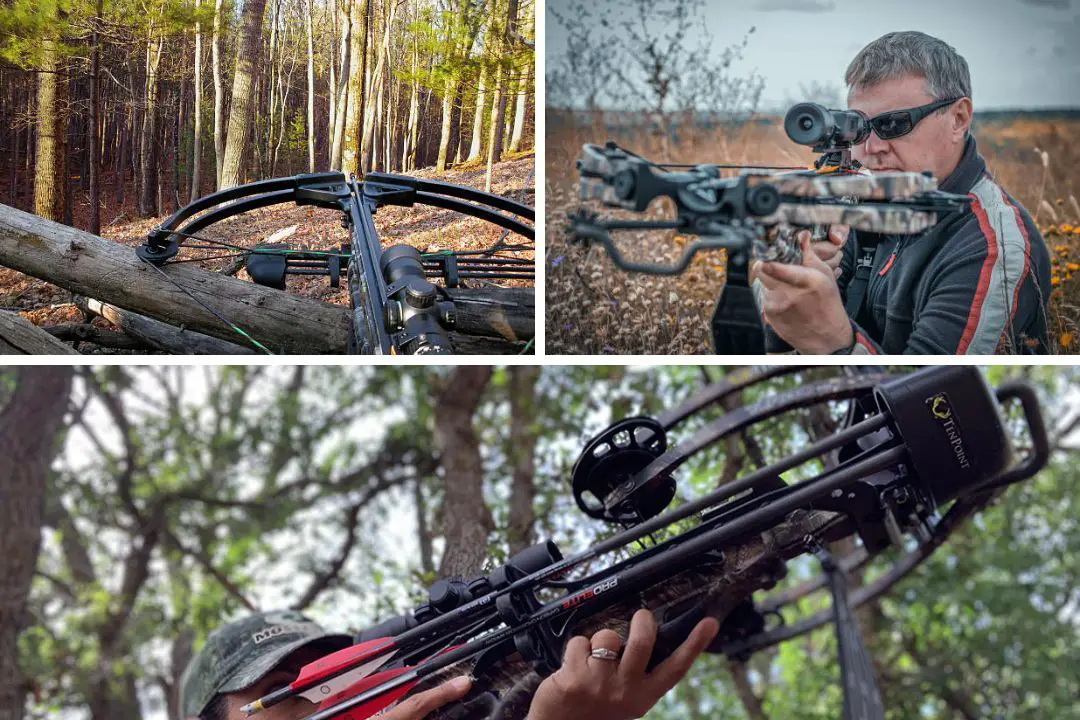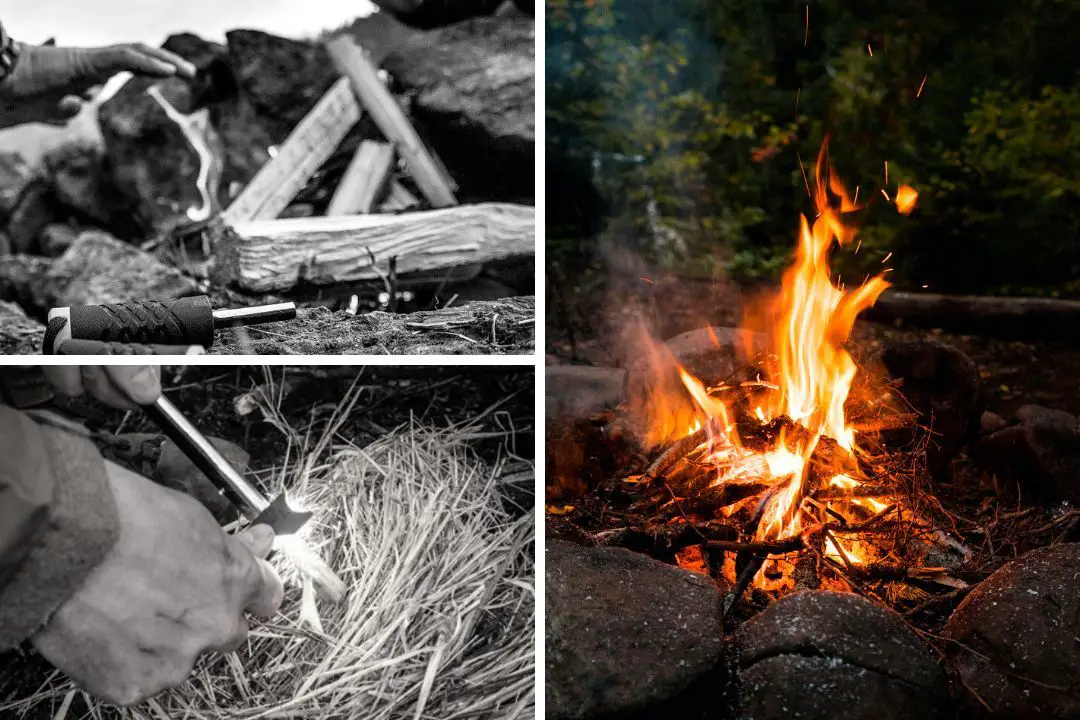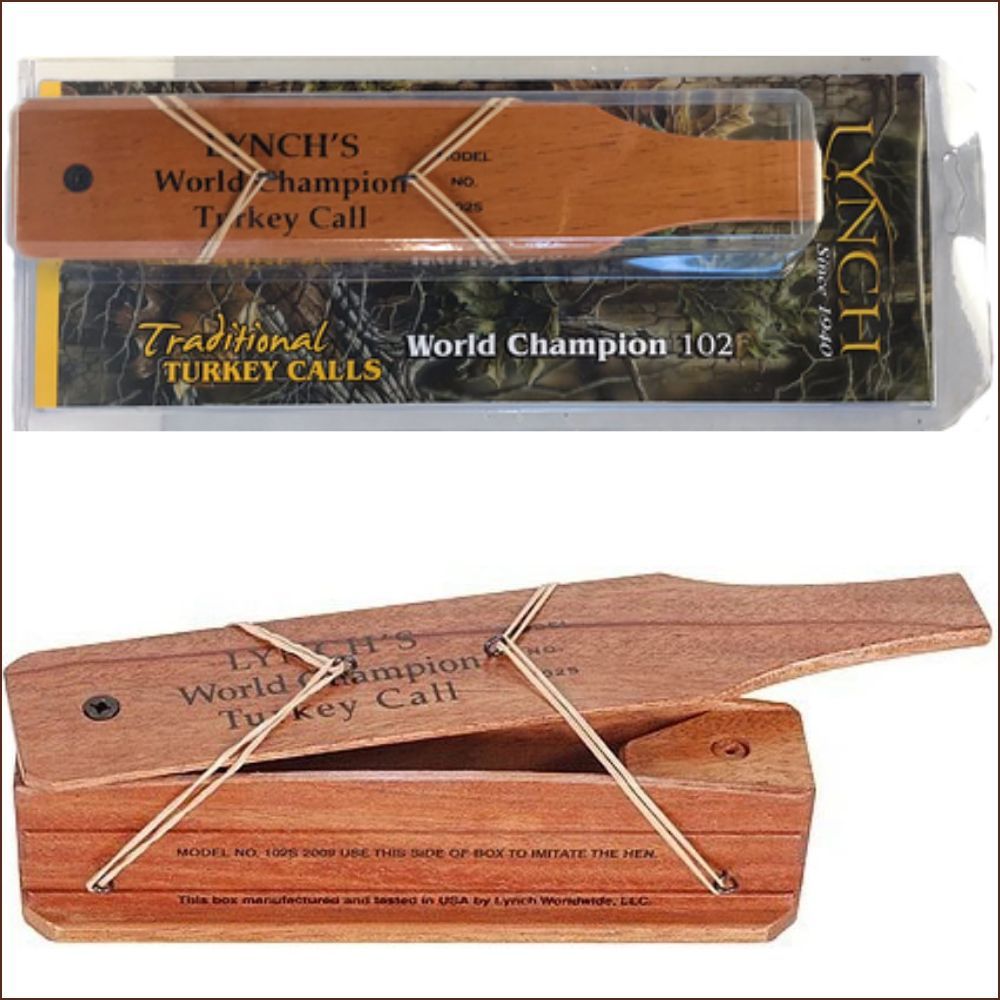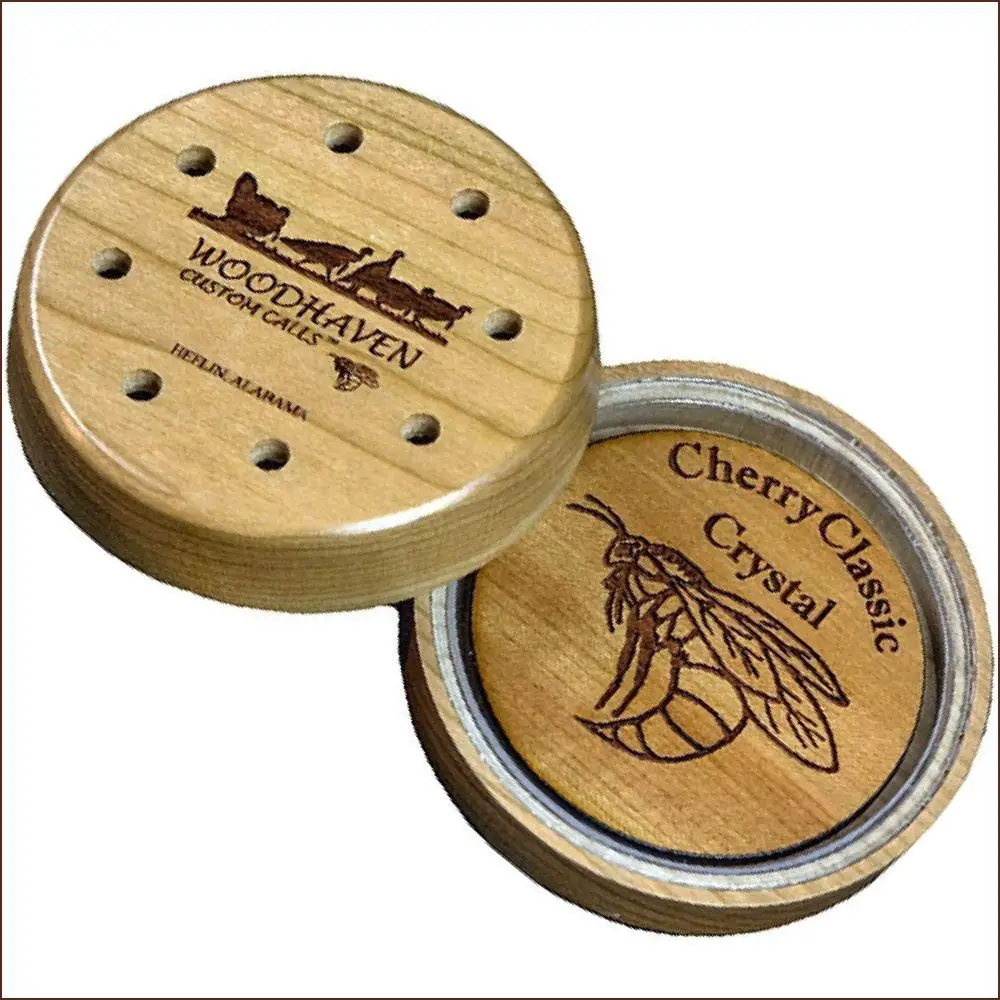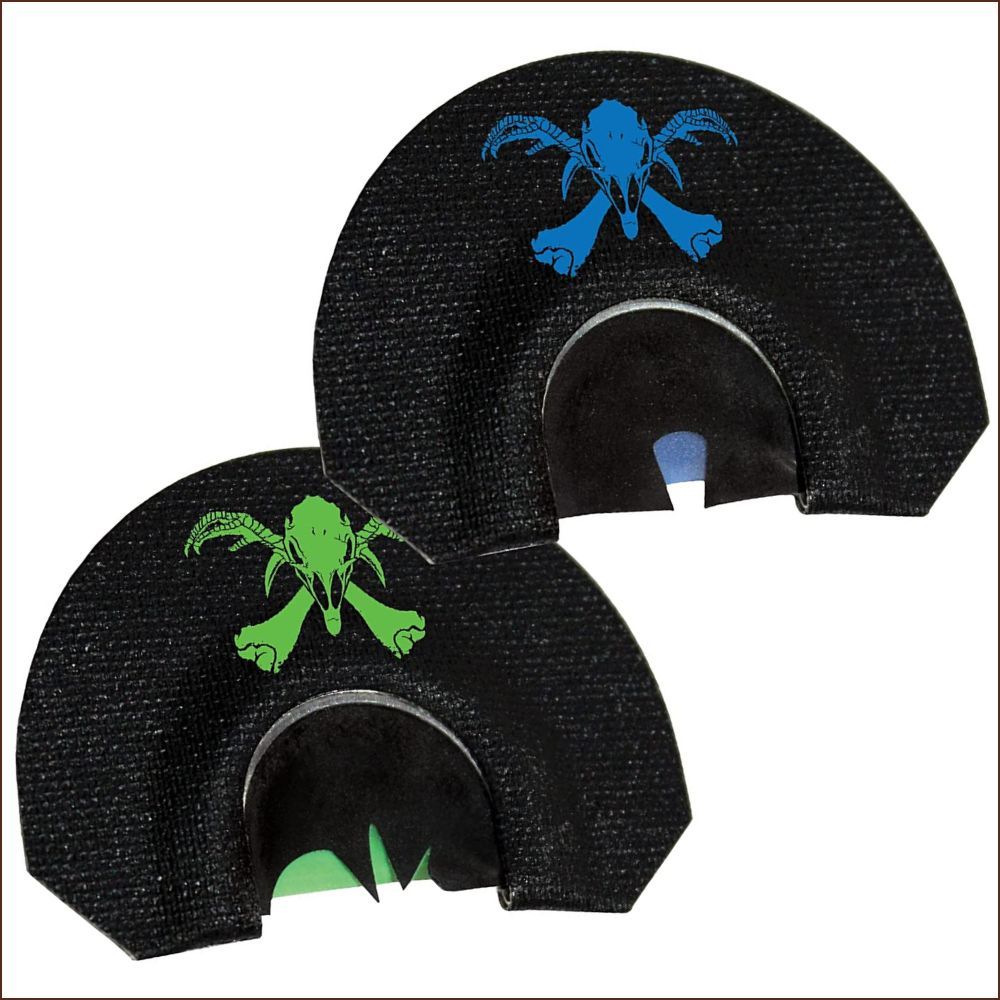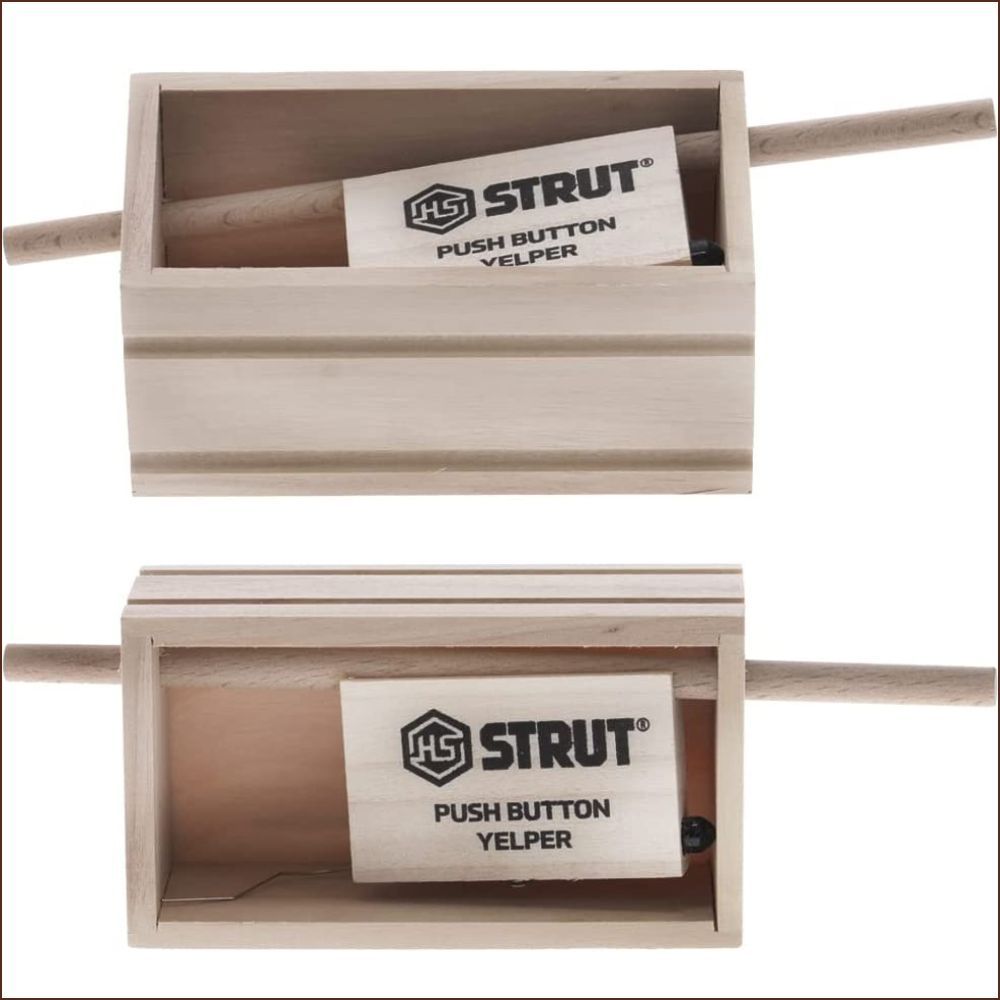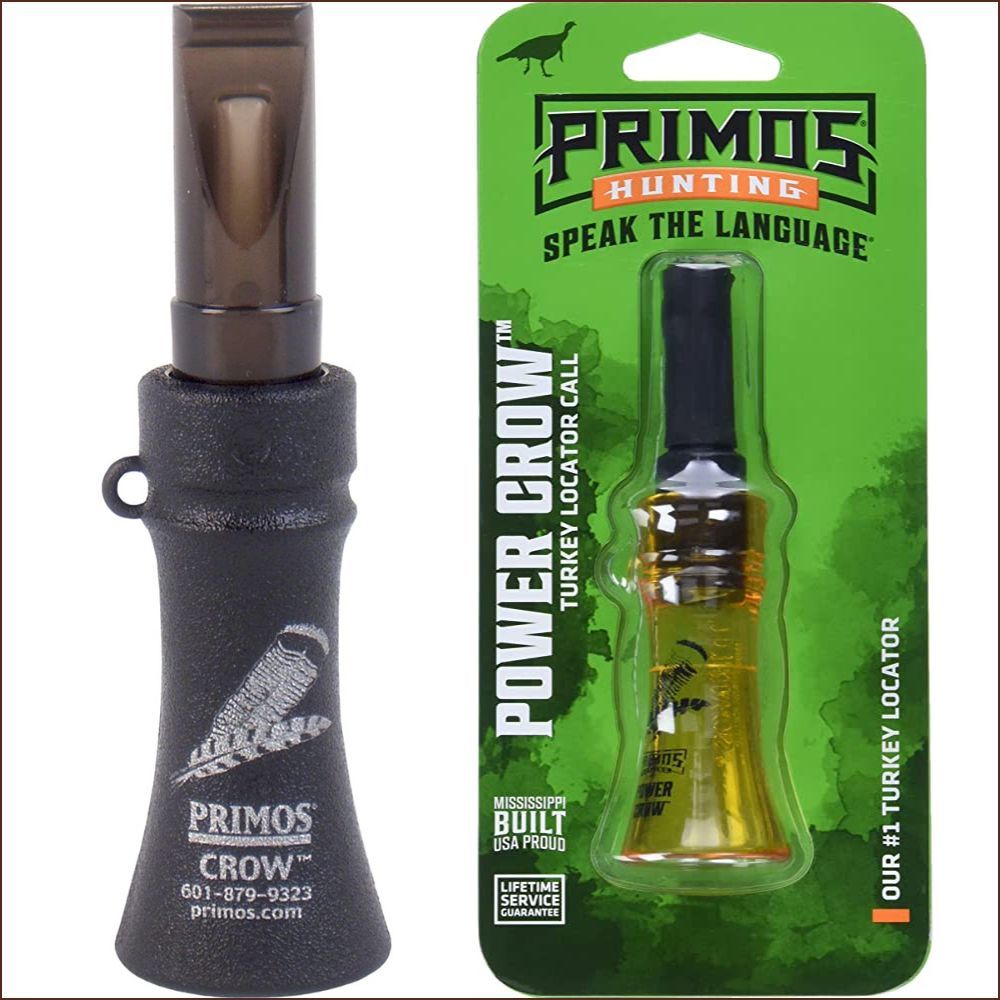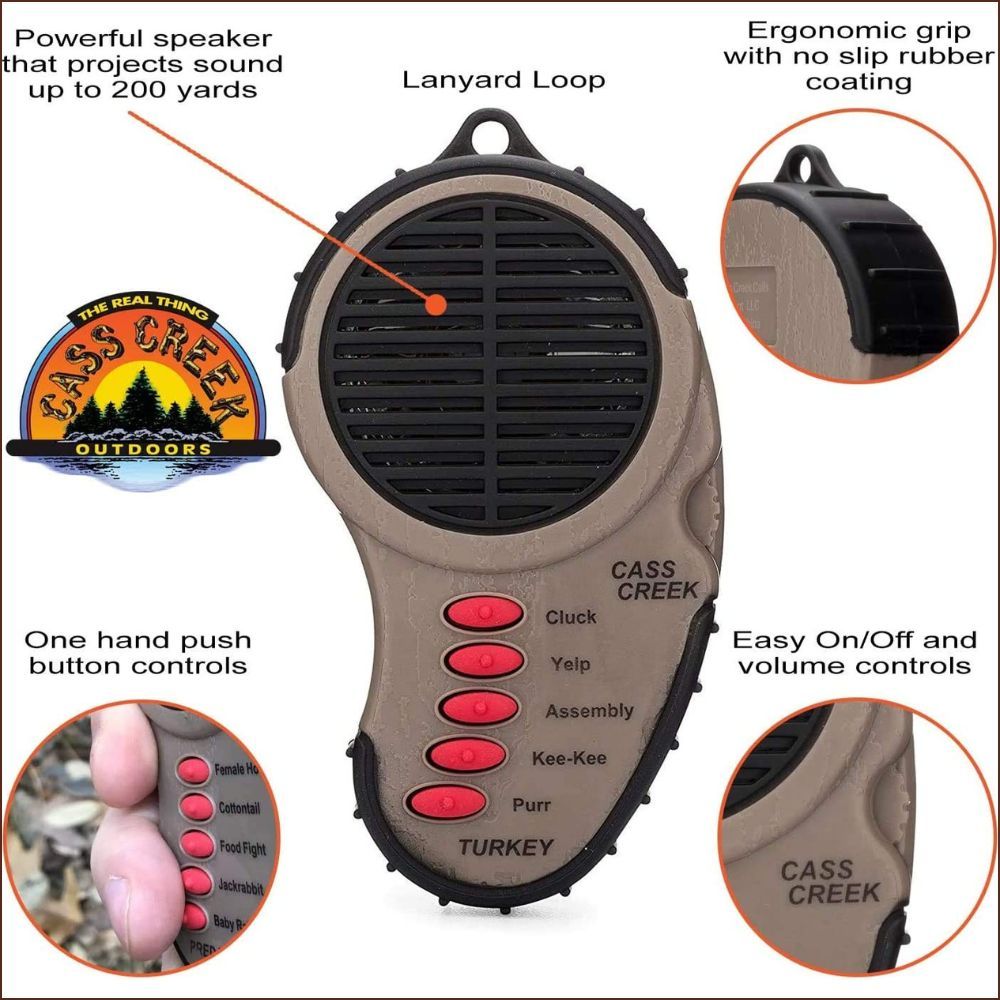The Best Turkey Call for People Who Think They're Already Good at Turkey Calls
Find the best turkey calls for your next hunting trip with our comprehensive guide. From box calls to diaphragm calls, we've got you covered. Read our blog now to upgrade your turkey calling game.
Are you tired of going home empty-handed after a long day of hunting?
Do you want to take your turkey hunting game to the next level?
Look no further than the world of turkey calls. Whether you're a seasoned pro or just starting out, finding the best turkey call can make all the difference in your hunting success.
In this article, we'll take a closer look at some of the top turkey calls on the market, and help you find the perfect one for your hunting style. Get ready to gobble up some turkey-hunting knowledge and take your skills to new heights!
How We Selected the Best Turkey Calls
When it comes to selecting the best turkey calls, we understand that it can be overwhelming to choose from the vast array of options available on the market.
Even if you pick one you can't be sure that it will produce the basic turkey sound correctly or it might have a limited range of sound, and durability. Not having the right call means missed opportunities and frustration in the field.
To make it easier for you, we have evaluated the top-performing turkey calls based on factors such as sound quality, range, ease of use, and durability. We also considered user feedback and consulted veteran turkey hunters to compile this list of the best turkey hunting calls for you. With our top picks, you can have a more successful and enjoyable hunting experience.
The box call is simply a hollow wooden container topped with a paddle that produces an authentic turkey-like sound when moved. These calls have existed exist for generations. But there are box calls and then there are Lynch World Champion Box calls!
When it comes to box calls these are truly the champions. They have been our favorite box calls for over a decade, and we are quite sure that this is going to stay for a few more.
The newest and best-ever design World Champion Call is made with premium mahogany and has bigger sturdier construction than ever before - it's built to last and sound great! Its heftier build, thicker lid, and improved sound will let you get those tricky turkeys in close.
Be a master of the wild and craft your hunt with precision when you pick up the best turkey box call. Don't miss out on your chance to call in that record breaker your friends only dream about - put the Lynch World Champion Turkey Box Call in its rightful place: next to you on your hunts!
Pros
· You will love the premium finish.
· Turkey quickly responds to these calls.
· Unique double-sided construction produces highly accurate gobbler or hen turkey calls.
Cons
· A bit expensive compared to other box calls
The Woodhaven Cherry Classic Friction Turkey Call is an essential tool in a serious turkey hunter's arsenal. It has a quarter-sawn cherry sounding board that produces a realistic nasal throaty tone, allowing you to call wild gobblers from hundreds of yards away.
The smooth striking surface comes with a protective lid. These calls make distinctive sounds, with two striking partners, a Hickory, and a Purpleheart, perfect for various pitches, and allow the user to change the tone of his calls whether the caller is yelping, clucking, cutting, or cackling.
Nearly 40 years of development have gone into perfecting this classic slate call, ensuring it functions as perfectly in your hands today as it did when first released. With the Woodhaven classic, you can pinpoint calling distance like never before, as you have full control over the volume of your calls and create the most realistic sounding calls with incredible range.
Whether you are just beginning your hunt or have perfected the adult hen assembly call over the years, this striking piece of craftsmanship is the authentic tool to make your outdoor adventure truly rewarding.
Pros
· Perfection through decades of unparalleled craftsmanship
· Comes with a striking surface conditioner.
· Versatile and can produce all sounds of any pitch with ease.
Cons
· A bit pricey compared to most average friction calls.
Are you ready to unleash your inner turkey hunter? With Primos Hunting Hook Hunter Turkey Mouth Call, you can!
Crafted with precision, care, and the highest gauge reeds, these calls will help you speak the language of turkeys like never before. With custom-designed reeds and hand-made cuts, each call creates unique pitches that even the wisest tom won’t be able to ignore.
Best of all, these calls are easy to use compared to any diaphragm call making them perfect for novice hunters who are just getting started in the sport.
So don’t wait – unlock your full turkey hunting potential with Primos Hunting Hook Hunter Turkey Mouth Calls today.
Pros
· This value pack contains 2 calls; one with the Ghost Cut which is best for purrs and the other with a spike cut, which is the standard and universal design.
· Competitively priced.
Cons
· It has a steep learning curve and if you have a high gag reflex, it is best to avoid these mouth calls.
Are you looking for an affordable, beginner-friendly turkey call? The Hunters Specialties Strut Turkey Call is the perfect fit! With its alluring sound and realistic imitation of a wild turkey’s calls, this is sure to attract new turkey hunters and old veterans alike.
It was a close fight between the Strut and the Bone Collector push call, which is another excellent choice, but we finally picked the Strut because of its budget-friendly price.
Crafted from sturdy poplar wood and walnut, this product ensures quality and longevity. You won’t have to worry about sacrificing sound or wear and tear with this tough yet cost-effective piece of equipment. With just the press of a button, you’ll be able to dazzle the woods with riveting audio that accurately mimics the signature calls from wild turkeys.
Hurry up, order yours today - without breaking the bank - on your next hunting adventure!
Pros
· Unbeatable price.
· Solid construction.
· Very easy to use.
Cons
· The sound might feel a bit muffled compared to a high-end call.
· Not ideal for use in windy or rainy weather.
Are you an avid turkey hunter looking for a locator call? Look no further than Primos Crow Call. This call is capable of making the subtle yet accurate sounds of crows, sure to invite gobblers close by.
Recreate realistic crow sounds with ease! Primos Crow Call can replicate the characteristics of a wild crow and prompt gobblers to reveal their location - saving you time, energy, and frustration. You’ll be able to move in on them before they know what hit ‘em!
Enjoy complete control over the hunt and the game while using this locator call to personalize your sound levels. Whether you adjust it for subtlety or intensity, its design gives you better air control to regulate the sound levels!
With its precise tuning abilities, this call will make sure that even experienced hunters get results beyond their expectations. Invest in one today and enjoy a premium quality performance on every hunt from now on!
Pros
· Great price.
· Sturdy build quality.
· Produce loud and clear sounds.
Cons
· Can be a bit difficult at first.
Are you a novice turkey hunter looking for the perfect hunting companion? Look no further than the Cass Creek Ergo Turkey Call!
This convenient and easy-to-use premium electronic call combines authentic animal recordings with digital sound quality, delivering a powerful performance every time.
No more worrying about success when you head out for your hunt. Preloaded with five calls, you can play them all at the push of one button; its sound will carry up to hundreds of yards away.
Stay safe and have fun with the Cass Creek Ergo Turkey Call – the easiest call preferred by turkey hunters!
Pros
· Value Price
· Easy to hold because of the ergonomic design.
· Can be used for hours with just 3 AAA batteries.
Cons
· Veteran hunters don't like the clarity of the digital sound.
· You cannot use them everywhere, and check your local hunting laws (web page of Wildlife agency or Official state publications) about their legality.
Special Mentions- Custom Turkey Calls
While there are many great mass-produced turkey calls for sale on the market, nothing beats a handcrafted call made by an experienced craftsman. Cody Turkey Calls, Lonnie Sneed Turkey Calls, Pat Strawser Turkey Calls, and Bill Zearing Turkey Call are some of the most popular custom turkey calls available today.
These custom calls (mostly pot calls and box calls) are known for their superior sound quality and craftsmanship that will fit any hunter's needs. They are made with premium wood and other materials that make them stand out from the competition.
These hand-carved wooden turkey calls have intricate details that create a unique sound capable of attracting turkeys from far away. However, these calls can be costly, with some models priced at up to $300!
But when it comes to turkey calling, nothing compares to the realism of a custom call and the satisfaction of using a handmade item. If you have the budget for it, investing in one of these unique calls could be an unforgettable experience that could make all the difference on your next hunt.
To increase your chances of success, watch this useful Dale Outdoors turkey hunting video for some helpful tips and tricks:
Frequently Asked Questions
As with any hunting tool, there are bound to be questions and uncertainties surrounding the use of turkey calls.
For those who are new to turkey hunting or are unfamiliar with the different types of calls available, it can be overwhelming to try and sift through all the information out there. The last thing you want is to be out in the field, ready to call in a turkey, and not know how to properly use your call.
To help you out, we've compiled a list of the most common questions about turkey calls. From how to use them to which ones are the most effective, we've got you covered. So, whether you're a seasoned turkey hunter or a novice, you can feel confident in your ability to effectively call in those gobblers.
What is the best call for turkeys?
When it comes to turkey hunting, the best call for turkeys is one that mimics their natural sounds and behavior. Turkey calls come in different types, but the most common are box calls, slate calls, mouth calls, and electronic calls. Each type produces a unique sound to lure turkeys into your hunting zone.
Box calls are popular because they are easy to use and produce a loud, realistic sound. Slate calls, on the other hand, are great for making soft, subtle calls that can attract even the wariest turkeys.
A Mouth call, (also known as a diaphragm call), is hands-free and allows hunters to make a variety of calls with precision, but it needs a bit of practice.
Lastly, electronic calls are a comparatively new facility added to the turkey call family and can mimic a range of turkey sounds, from clucks to gobbles, and is the most beginner-friendly type of call.
Choosing the best turkey call depends on your personal preference, the type of hunting you're doing, and the turkey's behavior. Experiment with different calls to find the one that works best for you. And always remember, the key to successful turkey hunting is to stay patient, remain still, and be prepared for the unexpected.
What are turkey calls used for?
Turkey calls are important tools used by hunters to attract turkeys to a specific area. Turkey calls to imitate the sounds made by turkeys, such as clucks, yelps, purrs, and gobbles. By making these sounds, hunters can convince turkeys that there are other turkeys nearby, causing them to move closer to investigate.
There are different types of turkey calls, including locator calls, box calls, slate calls, mouth calls, and electronic calls. Each type of call produces a unique sound, and the choice of which call to use depends on the hunting situation and personal preference.
Learning to use turkey calls effectively takes practice and patience. Hunters must know when and how to use the different types of calls to attract turkeys without scaring them away. With practice, hunters can learn to make realistic turkey sounds that will attract turkeys to their hunting location.
How long should I turkey call?
The duration of turkey calls can vary depending on the situation and the behavior of the turkeys. In general, it is best to call for short periods, usually around 5-10 minutes, and then wait for a response from the turkeys. If the turkeys respond positively, you can continue calling, but if there is no response or the turkeys seem to be moving away, it is best to stop calling.
It is important to note that overcalling can be a common mistake when using turkey calls. Constant calling can cause turkeys to become suspicious and move away from the hunting location. Additionally, calling too loudly or too frequently can make the turkeys think that there are too many turkeys in the area and can also scare them off.
To effectively use turkey calls, practicing and paying attention to the turkeys' behavior is important. Learning to read their body language and vocalizations can help determine when to call and how long to call. By using the best turkey calls and calling for the appropriate duration, you can increase your chances of a successful hunt.
What is a turkey assembly call?
Adult hens use a turkey vocalization called "assembly call" to gather their flock or young poults. It involves a series of loud and emphatic yelps, which are longer than the regular ones. Usually, it's used in the fall when trying to reunite a scattered flock. Besides, it helps adult hens stay in touch and locate each other.
How do I attract more turkeys?
To attract more turkeys, using the right turkey call can make a big difference. Different types of turkey calls, can mimic the sounds of a turkey's vocalizations and make them believe there are other turkeys nearby. You can also use decoys to make your hunting area more attractive to turkeys.
It's important to be patient and persistent inside your turkey blind, as it can take some time for turkeys to respond to your calls. Additionally, scouting the area beforehand to locate where the turkeys are roosting and feeding can increase your chances of success. Remember to always follow hunting regulations and safety guidelines while in the field.
What are the 3 types of turkey calls?
When it comes to turkey calls, there are three main types that every turkey hunter should know about, friction calls, mouth calls, and locator calls.
Friction calls produce sound by rubbing a striker against a surface. These are the easiest calls to use and are the most versatile, but they can be expensive. There are several types of friction calls, commonly Box Calls, Slate Calls (also glass calls or pot calls), and push-button calls.
Mouth calls, also called diaphragm calls, produce sound by manipulating the airflow through the call using your mouth and tongue. These are inexpensive and produce highly accurate sounds, but are not very beginner friendly. There's another type of turkey call that produces sound by blowing air through them, and they are called Wing bone calls, these are the most primitive type of turkey calls
Locator calls (also called shock calls) are used to help locate turkeys and include crow calls, owl hoots, and other non-turkey sounds. The idea is simple, as turkeys tend to respond to loud noises giving away their location. But if you want to shock call turkey during autumn, you will be out of luck as this works best during spring turkey season when the toms are all ready for the breeding season.
Each of these types of calls has its strengths and weaknesses, so it's essential to have a variety in your hunting arsenal. Whether you prefer to use one type exclusively or mix and match depending on the situation, understanding the different types of turkey calls will give you an advantage in the field.
Which turkey call is easiest to use?
The easiest turkey call to use depends on the individual and their level of experience with calling turkeys. If you are a beginner, an electronic call is the best option as it is simple to use and produces loud, realistic sounds while keeping your hands free.
But if you're a beginner looking for an easy-to-use turkey call and want something without any electronics, the push-button call is the easiest turkey call. This call uses a simple sliding paddle to produce the sounds of a turkey, and it's generally considered one of the easiest calls to use effectively. With some practice, you can make not just a basic turkey sound, but rather a variety of sounds such as clucks, purrs, and yelps.
However, hunters with some experience find that mouth calls, also known as diaphragm calls, are easy to use once they become familiar with them. But, mouth calls do require some practice to master the technique of creating realistic turkey sounds, and if you have a high gag reflex while putting a foreign object in your mouth, then these calls are not for you.
And when it comes to the type of call, the easiest one that even a beginner can make is the yelling of hens. Ultimately, the best turkey call for you will depend on your personal preference and experience level.
It is important to try out different types of turkey calls and find the one that works best for you. With practice and patience, you can become proficient in using the best turkey call for your hunting needs.
How many turkey calls do I need?
The number of turkey calls you need really depends on your personal preference and hunting situation. Many hunters find that having a variety of calls can increase their chances of success in the field.
A basic turkey hunting setup might include a box call, a pot call, and a mouth call. The box call is great for producing loud and clear sounds that can carry over long distances. Pot calls are versatile and produce a range of turkey sounds, while mouth calls allow you to create realistic turkey sounds with your own mouth.
If you are just starting, one or two turkey calls may be sufficient, and check out our article on Best tips for turkey hunting for some more tips. As you gain experience and become more comfortable with different calls, you may want to expand your collection to include more specialized calls like locator calls or gobble shakers.
Ultimately, the key is to practice and become proficient with the calls you have. The best turkey hunters are able to use their calls effectively to create realistic turkey sounds and lure birds within range.
When should I start turkey calling?
If you want to start turkey calling, the best time to begin is a few weeks before the start of turkey hunting season. This will allow you to practice and perfect your calling techniques, giving you the best chance of success once the season begins.
It's important to remember that turkey calling is a learned skill, so don't be discouraged if it takes some time to get the hang of it. Start with simpler calls and gradually work your way up to more complex ones. With practice and patience, you'll soon be able to call in those elusive turkeys.
How often do you call turkeys?
Understanding the right calling techniques is crucial for a successful hunt but this isn't a one-size-fits-all approach, as it depends on various factors such as the time of day, turkey behavior, and your level of expertise.
Typically, it's best to start with a more conservative approach to calling. Make a few calls every 15-20 minutes to gauge the turkey's response. If you notice that the turkey is responding positively, maintain this frequency or even increase it slightly. However, if you don't receive any response, it's time to switch things up and consider implementing aggressive calling.
Aggressive calling involves making more frequent and louder calls to attract the attention of nearby turkeys. This technique can be particularly useful when dealing with call-shy or pressured birds. But remember, aggressive calling should be used judiciously, as overdoing it may scare away the turkeys.
As you gain more experience in turkey hunting, you'll develop a better understanding of when to use different calling techniques. Until then, practice your calls, pay close attention to the turkeys' responses, and adjust your strategy accordingly.
What is the hardest turkey call to use?
The hardest turkey call to use depends on the individual's experience and skill level. Some people may find mouth calls more difficult to use because it has a steep learning curve, while some other turkey hunters may struggle with box calls or slate calls because you cannot keep your hands free while using those calls.
It's important to try out different types of calls and practice using them before heading out into the field. With practice, any type of turkey call can become easier to use. Remember, it's not about which call is the hardest or easiest, but rather finding the call that works best for you and the turkeys in your area.
Is owl or crow call better for turkey?
With a locator call, you can imitate the sound of various wild animals. However, owl and crow calls are typically used more frequently than other selections. If used correctly both of them can be effective for locating turkeys and moving in on them but the answer ultimately depends on the preference of the turkey hunter. Some hunters swear by owl calls, while others prefer crow calls.
Owl calls tend to be higher-pitched and more piercing, which is more suitable during the early morning hours around sunrise and the late evening hours. While crow calls are louder and more aggressive and can be used almost thought the day.
It's best to experiment with both types of calls and see which one works best in your hunting area and the time of your hunts. Additionally, different situations may call for different calls, so it's always a good idea to have both options available in your turkey call arsenal.
What is a female turkey call?
A female turkey call is a specific type of turkey call used to imitate the sounds of a hen or female turkey. Hen turkey calls can range from clucks, soft purrs, and yelps to loud, excited cutting sounds.
By using a female turkey call, hunters can lure in toms and increase their chances of a successful hunt. There are a variety of hen calls available, so it's important to choose the one that works best for you and the specific hunting situation.
Which is better glass or slate turkey call?
When it comes to choosing between glass or slate turkey calls, it ultimately comes down to personal preference. Glass calls tend to be louder and have a higher pitch, which can be effective in open fields or on windy days.
On the other hand, slate calls are softer and produce more realistic turkey sounds, making them ideal for quiet, wooded areas. It's a good idea to try both and see which one works best for your hunting environment and style.
Some hunters even use both types to cover all their bases but prefer glass during the early morning hours. Remember, the key to a successful turkey hunt is not necessarily the type of call, but how well you can use it to mimic the sounds of a turkey. So practice, experiment, and have fun!
How to locate a turkey roost?
Locating a turkey roost can be tricky, but with the right knowledge and techniques, you can find one in no time.
The first step is to look for signs of where turkeys have been roosting. This could include bird droppings or feathers on the ground. You may also want to use locator calls such as an owl call or crow call to get a "shock" gobble from a big tom.
Another way to locate turkey roosts is by looking for areas that have plenty of food sources like insects, berries, grasses, and other foods. River bottoms, pond edges, field edges, ridge tops, and hilltops are all great places to start your search.
Finally, you can use the cover of darkness to your advantage by using owl hooters and crow calls after dark to locate where turkeys are roosting. With these tips in mind, you should be able to easily locate a turkey roost!
Final Thoughts on the Best Turkey Call
Finding the best turkey call can make a huge difference in your hunting success. With so many options available, it can be overwhelming to know where to start. But, armed with the knowledge we've provided in this article, you can confidently choose the right turkey call for your hunting style and level of experience.
For your reference, our top picks are:
Best Box Call - Lynch World Champion Turkey Box Call
Best Friction Call - WoodHaven Cherry Classic Friction Turkey Call
Best Mouth Call - Primos Hunting Primos Hunting Hook Hunter Turkey Mouth Calls
Best Push Button Call - HS Strut Turkey Call
Best Locator Call - Primos Crow Call
Best Electronic Call - Cass Creek Ergo Turkey Call
Don't let another turkey season go by without the right call in your arsenal. Click on the 'Check Price on Amazon' buttons for our top picks and add them to your shopping cart for this Spring Turkey season.
We're confident that our selections will help you call in those gobblers like never before.
Happy hunting!
Also, check out our articles on :
Some other informative articles that you might like:
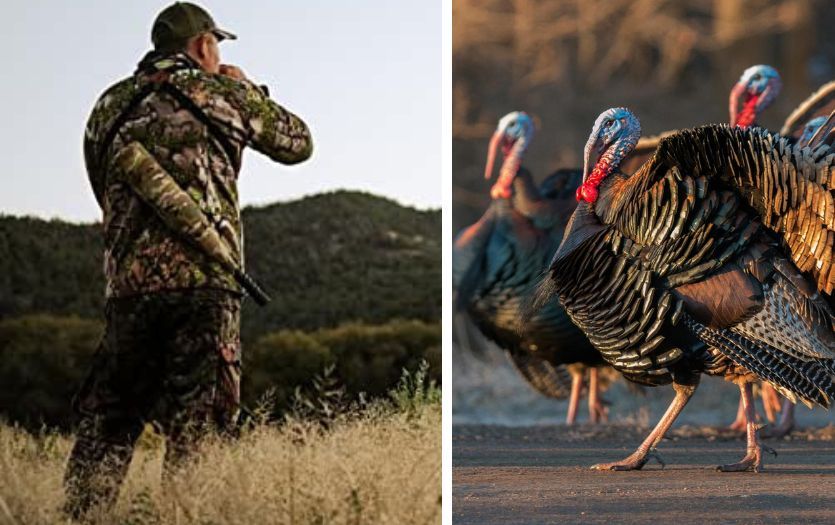
Some of our other articles, that you might like:
